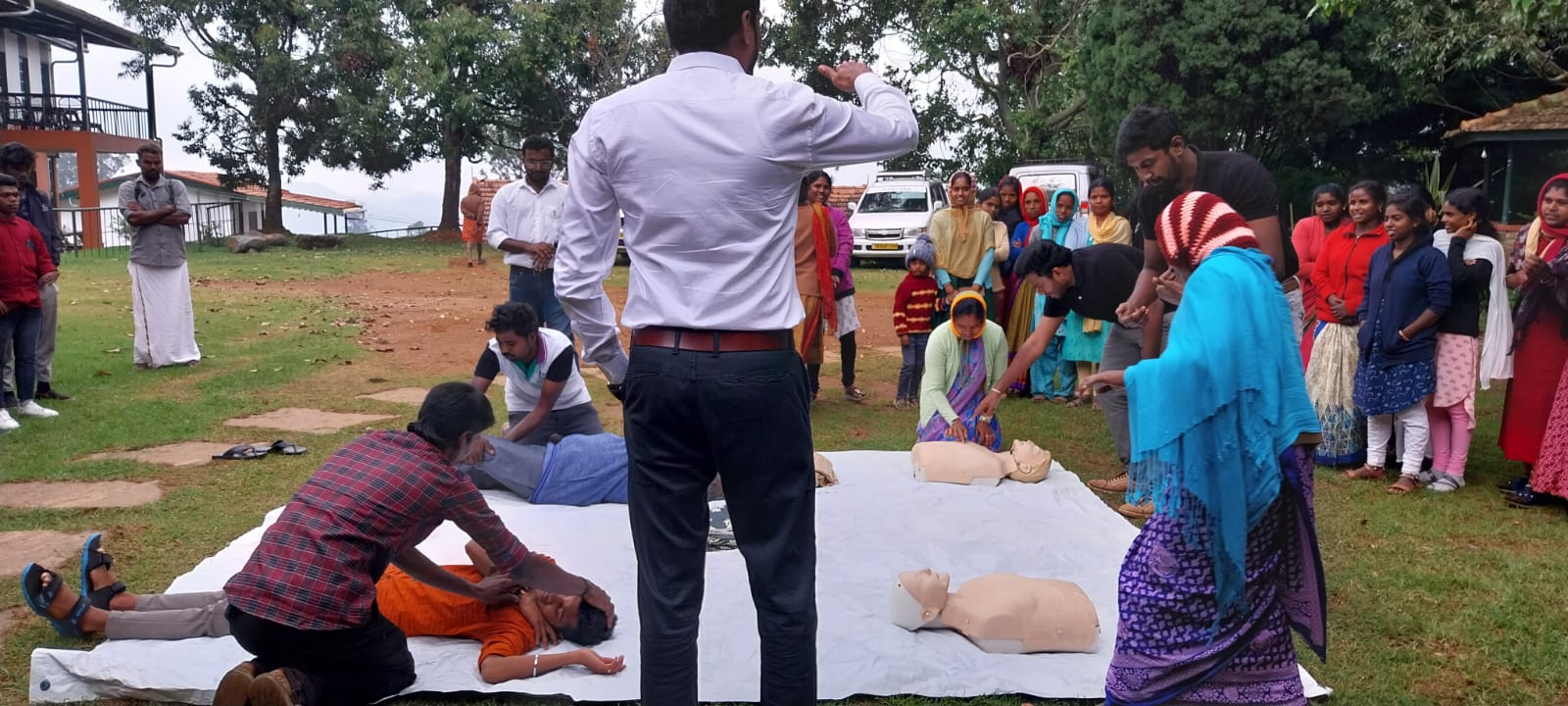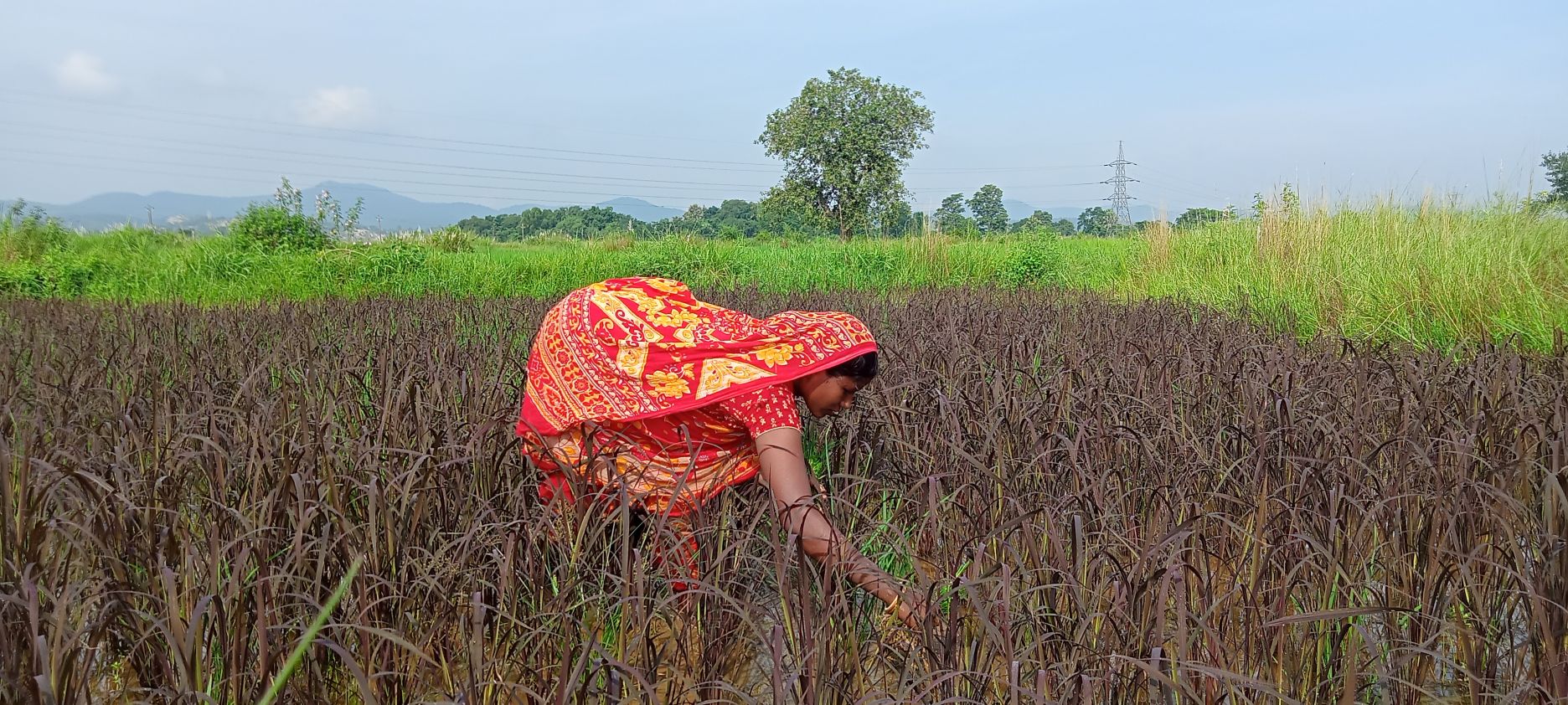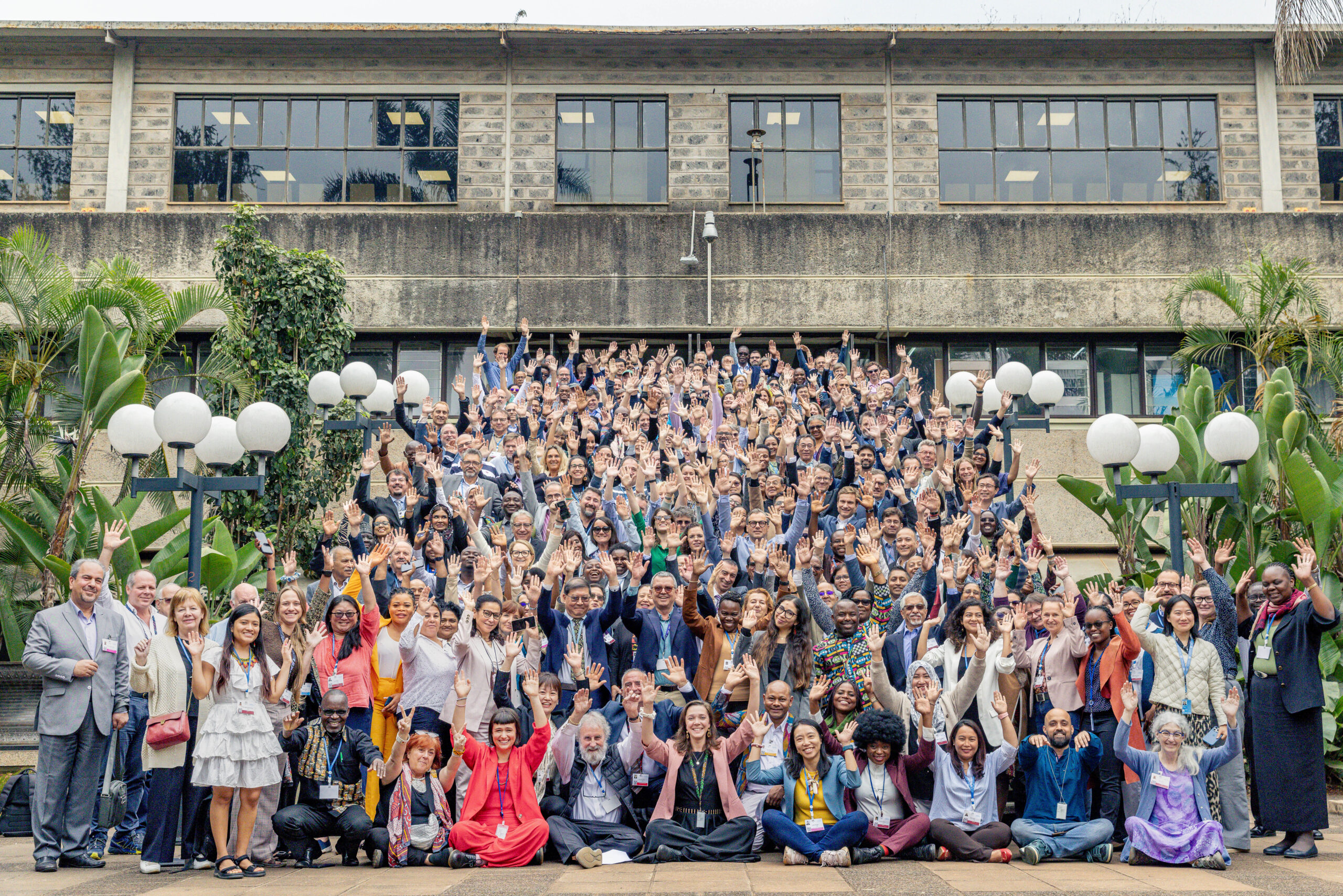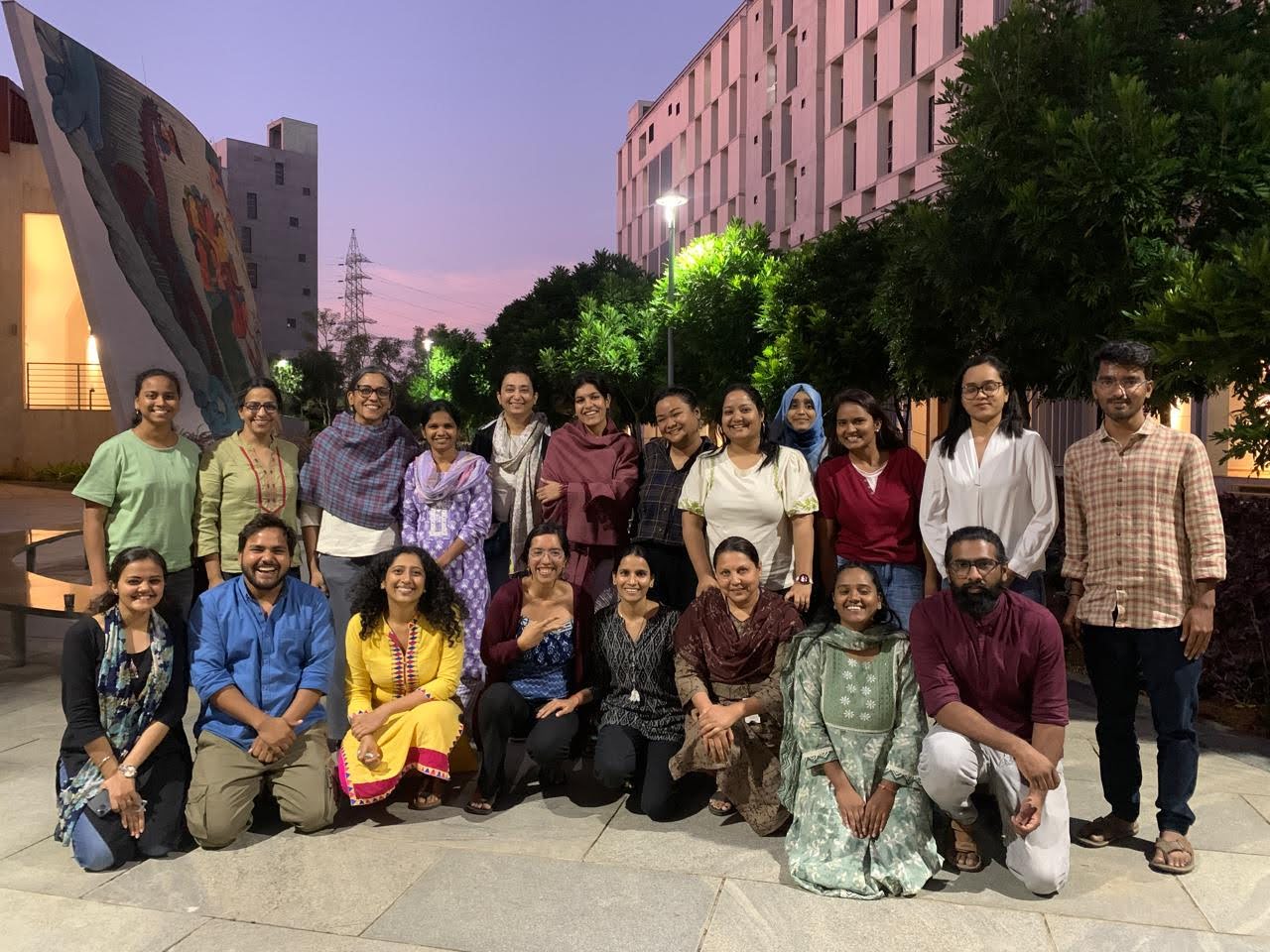February 6, 2024
By Anagha C.
Addressing climate change and disaster management is crucial due to the escalating frequency of issues such as floods, wildfires, landslides, and other natural disasters. The relentless increase in these challenges affects people frequently. Tribal communities, being particularly vulnerable to such problems, find disaster management training essential and significant in enhancing their awareness and preparedness for such events.
Through our funding from the Swallows Lund — Svalorna IB organization in Sweden, we were able to provide disaster management training to Indigenous communities in Kerala and Tamil Nadu. The goal of Swallows Lund–Svalorna IB is to work with vulnerable groups toward food sovereignty and life with dignity. These goals are aimed to be met by improving communities’ preparedness and resilience towards climate change, through capacity building, promoting leadership, and advocacy directed at duty bearers, through the lens of climate justice, and gender.
As one of the first steps to attain this goal, 2 trainings, one in Kerala, and another in Tamil Nadu, were conducted to improve disaster preparedness at the community level. The trainings covered our 7 working Socio-Ecological Areas (Aracode, Coonoor, Konavakkarai, Pillur, Sigur, Hasanur and Nilambur). Our primary aim is to develop more decentralized and localized disaster management groups that can act as a strong force in managing in cases of future disasters, ultimately leading to strong local governance.
In Tamil Nadu, the training, occurring on December 28th at Keystone Foundation, was facilitated by professionals from the Organization ALERT in Coimbatore. ALERT (Amenity Lifeline Emergency Response Team) is a volunteer-driven NGO working to make ‘Right to Life’ a reality in India by bettering the emergency response ecosystem.V. Karthik, ALERT’s Training and Public Affairs Officer, and Vengadesan, ALERT’s Project Officer, taught the training.
In Kerala, the training was facilitated on January 20th in Nilambur by a Malappuram-based NGO called Emergency Rescue Force, with ERF president Mr. Abdul Majeed and Mr. Shamsuddeen Kolkkadan, a member of the ERF, presiding. ERF’s secretary, F. Shabeer Ali, was also part of the training program. As the first part of the training, called Bardayya, had been conducted a couple of months prior, this training was held as the second part of the program. The training was inagurated by Nilambur Block Panchayath president Ms. Pushpavalli.
Apart from the ERF, the Mahila Samakhya Society was also involved in the training program. Mahila Samakhya is a program anchored by the Kerala Government. It aims to translate the goals of the National Policy on Education and Empowerment of women in rural areas, particularly of women from socially and economically marginalized groups. Mahila Samakhya works to garner women’s energies to collectively solve their problems and empower them to address issues themselves through Mahila Sanghas at the grassroots level. elected students from the ICs who are part of this Mahila Samakhya were also part of the training. Additionally, the Trauma Care unit was also present at the training.
Both workshops were expected to yield positive results, with tribal participants not only understanding climate change but also gaining fundamental first-aid skills. The training session covered current realities of climate change and associated disasters which are very common in our landscapes, and the basics of disaster management. Under Disaster Management, discussion elements such as Prevention and early warning, Search and rescue emergency relief, Reconstruction and Rehabilitation, and Prevention and Mitigation were discussed in detail. Moreover, theoretical and practical sessions on emergency first aid and life skill support were carried out as part of this training.
The primary motive of the training is to create informed communities that are prepared and resilient to face possible and unavoidable climate change effects. In Tamil Nadu, selected people from the Forest Right Committee (FRC) from all the working villages of the 6 socio-ecological areas participated and benefitted from the training. Similarly in Kerala, they chose to focus on youth for this training, aligning with the government and Rescue department’s interest in collaborating with younger generations. We hope for these trainings to pave the way for future collaborations, and to act as investments for future intervention.


















